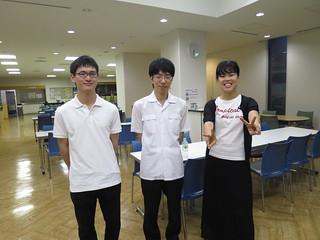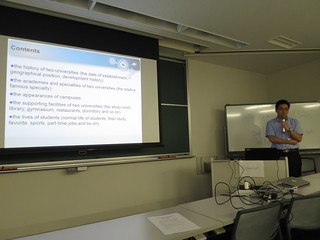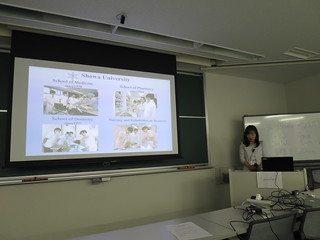2017 Keynote Speaker: Dr. CHEW Yu Gee
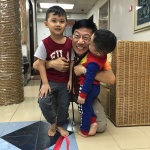 Dr Chew Yu Gee is currently the consultant paediatrician and medical director of Hope Children Hospital, that he founded in 1993. He also travels frequently as a ‘missionary doctor’ to Cambodia, Pakistan, Bangladesh, Zambia, etc. He is part of CREST, an international medical crisis relief team. He is forever grateful to the Singapore government for providing him a Merit Scholarship to study medicine at the National University of Singapore. He got is specialist training in Paediatrics at NUS, the Royal College of Physicians in Ireland and the Academy of Medicine in Malaysia. Due to his interest in childhood and adolescent psychiatry, he founded the Lighthouse Academy for Special Needs children. Dr Chew serves a pastor and head elder of the Lighthouse, a ‘home’ for orphans, elderly, disgruntled kids and a place for rehabilitation. He is the designer, architect, landscaper, gardener and proud owner of the Lost Paradise Resort which houses a clinic, the school and the home in it’s compound.
Dr Chew Yu Gee is currently the consultant paediatrician and medical director of Hope Children Hospital, that he founded in 1993. He also travels frequently as a ‘missionary doctor’ to Cambodia, Pakistan, Bangladesh, Zambia, etc. He is part of CREST, an international medical crisis relief team. He is forever grateful to the Singapore government for providing him a Merit Scholarship to study medicine at the National University of Singapore. He got is specialist training in Paediatrics at NUS, the Royal College of Physicians in Ireland and the Academy of Medicine in Malaysia. Due to his interest in childhood and adolescent psychiatry, he founded the Lighthouse Academy for Special Needs children. Dr Chew serves a pastor and head elder of the Lighthouse, a ‘home’ for orphans, elderly, disgruntled kids and a place for rehabilitation. He is the designer, architect, landscaper, gardener and proud owner of the Lost Paradise Resort which houses a clinic, the school and the home in it’s compound.
Keynote Speech
Flying without Wings
Profound, happy, successful, peaceful, powerful, purposeful living should be a common goal for all. The song by Westlife ‘Flying without wings’ aptly describes this state of living profoundly. The sixth verse says ‘Cause who’s to know which one you let go, would have made you COMPLETE’. One way of living a peaceful powerful and purposeful life is by loving, serving and blessing another sacrificially.
Unless a seed falls to the ground and ‘dies’, it remains a single seed but when it dies it produces many seeds.
2017 Keynote Speaker: Mr. S. Khim Wong
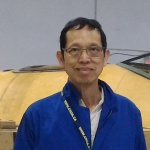 S. Khim Wong was born and grew up in Kuala Lumpur, Malaysia. He earned his bachelor degree in Mechanical Engineering from North East London Polytechnic/University of East London, England. His professional work experience started with Ford Motor Company in England and at British Gas Research Center. Returning to Malaysia in 1978 he worked for Tan Chong Motors/APM Holdings and started up a factory making car air conditioners. During this time, he traveled often to Japan for training and business.
S. Khim Wong was born and grew up in Kuala Lumpur, Malaysia. He earned his bachelor degree in Mechanical Engineering from North East London Polytechnic/University of East London, England. His professional work experience started with Ford Motor Company in England and at British Gas Research Center. Returning to Malaysia in 1978 he worked for Tan Chong Motors/APM Holdings and started up a factory making car air conditioners. During this time, he traveled often to Japan for training and business.
Khim joined the North American automotive industry in 1989 as plastic fuel tanks were beginning to replace steel tanks. At that time plastic fuel tanks were already commonly used in Europe and it was yet to be introduced in Japan. As emission limits for fuel vapour changed from 2 g/24hours to 0.2 and then to 0.054 g/24hours, the plastic fuel tank industry had to improve or die. He witnessed and participated in the evolution of the plastic fuel tank system and in 2003 he was a member of the team that won the Solvay Innovation Award for the development of a Fuel tank system that met the PZEV (0.054 g/24 hours) evaporative emission limit.
He has written a number of technical specifications including one published by The Society of Automotive Engineers International, SAE J2587 – Optimized Fuel Tank Closure, where he was chairman and co-author.
Khim was the first employee of his company to be posted to China in 2005. During the 5-year period, he established the supplier base and was the technical consultant and trainer. By 2016, his company has eight factories in China and India.
His work experience in Asia, Europe, and The Americas gave him a Global prospective of different work ethics and social cultures.
Keynote Speech
Quality of Life – A sum of many parts – of Cars, Life and an Aeroplane
This presentation aims to provide a glimpse of an Automotive Engineer’s view in the development of a motor vehicle and what it was like to work in the North American and Global automotive industry.
A car consists of about 30,000 parts. Different modules like the body, engine, transmission, seats, electrical, electronics ETC were assembled within 40 to 80 seconds at each assembly station.
In the design, development, testing and manufacturing, each car component must meet the functional and durability standards and requirements. Failures can result in costly production stoppage and recalls that can bankrupt a company.
A Fuel Storage and Delivery System is probably the most dangerous device we use every day. The fuel system and the dynamics of Filling, Storage, Gauging, Venting, Fuel Delivery, Vapour Management and Safety were explained.
Air pollution has harmful effects on human health. Pollution from burning fuel and fuel vapour are major contributors to air pollution problems. By 1990, the plastic fuel tank was already popular in Europe with about 80% market share, however in North America it had about 20% market share, and the plastic fuel tank industry faced a ‘death penalty’ when new emission regulations from California called for more stringent fuel vapour emission limits which technology of that time cannot meet. From 1992, new technologies were invented and evolved. Multi layer blow moulding, enhanced fuel tank system architecture and On-board Refueling Vapour Recovery (ORVR) system help to reduce evaporative emissions. By early 2000, it has gained about 80% market share.
The lessons learned from his first job at Ford Motor Company in England has the profound and lasting effect through out his professional life in Malaysia, the Americas, China and Europe.
2017 Keynote Speaker: Dr. K. W. Loh
|
He founded the Association of Orthodontists, Singapore in 1991 and was the president for the first 2 years. He was appointed as an external examiner in the Re-examination for the final year of the Bachelor of Dental Surgery degree, Faculty of Dentistry, National University of Singapore in 1998 and 2002. He was the President, Asian Pacific Orthodontic Society 2010-2012. He is the Regent for Singapore, International College of Dentists. Dr. Loh has given presentations in 23 countries including – Australia, Bangladesh, Cambodia, China, Hong Kong, India, Indonesia, Japan, Macau, Malaysia, Mexico, Myanmar, Nepal, Pakistan, Philippines, Russia, Singapore, Sri Lanka, South Korea, Taiwan, Thailand, United States of America and Vietnam. Keynote SpeechGood oral health is good general healthMany of us will send our car for a 6 monthly oil change, engine tuning and maintenance work, but how many of us will visit our dentist for a regular 6 monthly cleaning and dental check up? What is more important to you? Your car health or your own health? Do you know your oral health is closely related to your general health? When there are many cavities in your teeth and when your gums are in poor condition, your own health will deteriorate. Illness like stroke, heart attack, premature birth and even mouth cancer can be related to poor oral health. A good set of teeth contributes to a better quality of life too. When one has a good set of teeth, one will enjoy eating and most of us enjoy good food. Good nutrition is needed for good health. This is especially important as we get older. Nicely arranged front teeth will improve facial appearance and generally improve the attractiveness of the face. This will contribute to better self confidence and perhaps, success in life. |
2017 Keynote Speaker: Judge Pamela Jenkins
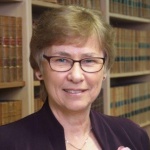 Judge Jenkins recently retired after nearly 18 years as a County Court Judge and approximately 8 years as a Vice President of the Victorian Civil and Administrative Tribunal (VCAT). Pamela currently holds appointments as a Reserve Judge and Senior Sessional Member of VCAT. The County Court (known as the District Court in other Australian States) has a jurisdiction similar to the District Courts in Japan. Prior to her appointment as a Judge, Pamela practised as a solicitor for nearly 20 years, specialising in corporate, tax, property and banking law; and held senior positions in the public sector concerned with the development of policy and legislation, including the establishment of VCAT.
Judge Jenkins recently retired after nearly 18 years as a County Court Judge and approximately 8 years as a Vice President of the Victorian Civil and Administrative Tribunal (VCAT). Pamela currently holds appointments as a Reserve Judge and Senior Sessional Member of VCAT. The County Court (known as the District Court in other Australian States) has a jurisdiction similar to the District Courts in Japan. Prior to her appointment as a Judge, Pamela practised as a solicitor for nearly 20 years, specialising in corporate, tax, property and banking law; and held senior positions in the public sector concerned with the development of policy and legislation, including the establishment of VCAT.
Keynote Presentation
Voluntary Assisted Dying – an Update and Exploration of Related Cultural and Medical Challenges
At the 2016 IAQOL Conference I presented a brief resume of the law relating to voluntary euthanasia and assisted dying regimes internationally and recent proposals being considered by the State Government of Victoria Australia.
In most countries, including Australia, euthanasia and any form of assistance given to hasten the death of a person, even at their request, is illegal.
However, there has been a growing recognition of a person’s right to choose to die when faced with under unbearable suffering from a terminal, incurable and untreatable condition.
In June 2016, a Parliamentary Committee in Victoria Australia tabled a report in the Victoria Parliament entitled: Inquiry into End of Life Choices.
The Committee made comprehensive recommendations relating to palliative care and advance care planning and outlined a proposal for legalising voluntary assisted dying in Victoria.
Since the release of that Committee’s Report, an expert panel was appointed to conduct further consultation and inquiries and recommend, in detail, how the Parliamentary Committee’s recommendations could be implemented.
The final report of the expert Panel was only released on 21 July 2017 and draft legislation to give effect to its recommendations will hopefully be presented to the Victorian Parliament in September 2017.
At the 2017 Conference, I propose to outline in some detail the Voluntary Assisted Dying regime now being proposed by the Victorian Government. The regime is not intended to operate in isolation but as part of an integrated model which also highlights the importance of advance care planning, a doctor patient relationship, family support, exploration of relevant treatment options, supportive health services and palliative care.
The regime now proposed in Victoria is based upon the limited model first adopted in Oregan USA in 1997 and subsequently extended to other States in the USA. The Victorian proposal includes many refinements and has also drawn extensively upon overseas experience. The proposed regime details comprehensive procedures for the protection of vulnerable patients, accountability of all participants and ongoing reporting, monitoring and review of the system.
I also propose to briefly raise for discussion the following topics:
First, how do different cultures think about and prepare for dying?
Secondly, how do different cultural practices and beliefs impact upon the acceptance of any assisted dying proposals?
Thirdly, are there undesirable consequences of advanced medical diagnostic techniques, in particular, the growing incidence of ‘over diagnosis’ and excessive treatment?
Finally, do any of these issues have relevance to the research topics chosen by research scientists, their responsibilities and accountabilities.
Background
Why do we need to talk about dying anyway, particularly at a Conference focused upon the Quality of Life? The answer is simple.
In developed nations at least, following significant advances in diagnostic medicine and health care generally, we are confronted with:
- An aging population; and
- Death following multiple complex pathologies and chronic and degenerative disease.
Indeed, in contrast to death even as recent as 100 years ago, dying has now been turned into a medical experience.
Whilst most physical and associated mental pain and suffering can be alleviated through the provision of better palliative care, it is well recognised that, even with the best medicine and care available, this is not always possible. Consequently, some people are dying terribly at the end of a terminal illness.
Furthermore, in both Australia and other jurisdictions, people have been prosecuted for assisting a loved one to die, with offences ranging from aiding and abetting suicide to attempted murder.
At the 2016 Conference I dealt briefly with the only current options for a patient afflicted with an incurable terminal illness and suffering unbearable physical pain and/or mental anguish, namely:
- Patients can refuse treatment;
- Treatment can be withdrawn or withheld;
- Continuous palliative sedation can be administered; and
- Suicide.
Currently, specific legislation permitting a prescribed assisted dying regime only exists in The Netherlands, Belgium, Canada, Luxembourg, Switzerland, Canada and the States of Oregon, Washington State and California in USA. The approaches taken in each of these jurisdictions vary quite significantly.
I will be reminding the Conference of the key features of the more comprehensive models operating in The Netherlands and Belgium (both since 2002).
I will also refer to a summary of the key features of current international regimes for voluntary euthanasia and assisted dying.
Assisted Dying and Diverse Cultures
SecondIy, I will briefly explore the apparent dichotomy between pursuing quality of life and prolongation of life. These pursuits are further complicated in the context of:
- cultural traditions which focus upon the autonomy of the individual as distinct from the predominance of the group; and
- different cultural and religious perspectives toward dying and death generally.
In the Japanese context, cultural factors and the complex hierarchy of social relationships may make the prospect of laws dealing with voluntary euthanasia and assisted dying far more problematic.
I will briefly explore the recent history of end of life care in Japan, certain critical court cases and the Official Guidelines which have been issued, with particular reference to the circumstances in which life support systems may be terminated.
Excessive Medical Diagnosis and Treatment
Thirdly, I wish to raise whether there are undesirable consequences of advanced medical diagnostic techniques? There is growing concern in the medical profession (without any clear answers) over the tendency, in the most developed countries, for over diagnosis and treatment. This occurs to two circumstances:
First, where multiple tests and investigations, sometimes quite intrusive, are ordered for a patient which may have little or no impact upon ultimate decision making in treatment, particularly for the very elderly; and
Secondly, where a patient, who has no relevant symptoms, is found to have some abnormality either as an incidental finding on screening or where a completely unrelated complaint is being investigated.
While people are living longer, they do so with more disease. Death is increasingly neither quick nor painless and in most rich countries, certainly in Australia, most people die in hospitals or nursing homes, contrary to their preference to be at home surrounded by loved ones.
I will examine the dilemmas facing both the medical profession and the public in dealing with these developments.
Finally, I will pose the question: What does all of this mean for research scientists, such as those attending the Conference; and what responsibility and accountability do they have.
2017 Keynote Speaker: Mr. Satya Sivaraman
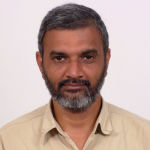 Mr Satya Sivaraman is currently the Communications Coordinator for ReAct’s Empowerment, Engagement and Network Extension (EEE) that links together a variety of ongoing initiatives to develop national policies and community interventions on antibiotic resistance in Asia, Africa and Latin America. He has been with ReAct since its inception in 2006 developing communication material, key messages, networking with civil society groups. He has also helped to conceptualize ReAct Latin America’s Reimagining Resistance project, that advocates an ecological approach to antibiotic resistance. Mr. Sivaraman is a journalist with over three decades of experience in newspapers and TV channels in South and South East Asia. He has also worked with the United Nations Economic and Social Commission for Asia Pacific and other UN agencies in different capacities. At ICQoL2017 he will be sharing some of the work related to QoL that he had undertaken with ReAct.
Mr Satya Sivaraman is currently the Communications Coordinator for ReAct’s Empowerment, Engagement and Network Extension (EEE) that links together a variety of ongoing initiatives to develop national policies and community interventions on antibiotic resistance in Asia, Africa and Latin America. He has been with ReAct since its inception in 2006 developing communication material, key messages, networking with civil society groups. He has also helped to conceptualize ReAct Latin America’s Reimagining Resistance project, that advocates an ecological approach to antibiotic resistance. Mr. Sivaraman is a journalist with over three decades of experience in newspapers and TV channels in South and South East Asia. He has also worked with the United Nations Economic and Social Commission for Asia Pacific and other UN agencies in different capacities. At ICQoL2017 he will be sharing some of the work related to QoL that he had undertaken with ReAct.
Keynote Presentation
Dancing with the Bacteria
The revolution going on in microbiology, particularly microbiome studies, has mind-boggling implications for human beings about how to live and understand life. It raises fundamental questions about humanity (e.g. who are we?) and our relation to both macroscopic life (the universe and all visible entities) and to the microscopic (the internal and external biosphere). Microbes are the invisible connectors of all life forms. In turn, in the larger universe, human beings are like microbes. By building a new conscious relationship with the microbes in and around us, we could through them uncover a new way of living with each other and with all beings in the ecosystem.
But what is involved in practice in adapting ourselves individually and collectively to uncover our microbial nature, its immense fertility and to nurture microbes ? Fear of microbes is very deep-seated in human experience, perhaps now operating as a generalized anxiety. The scapegoat dynamic is alive and well in our relationship with microbes, and never far from the surface in all levels of human relationship. It is palpable in the current instability and the politics of fear being played out around the world. Microbes, in particular bacteria and viruses, are symbols, metaphors and real age-old scapegoats of disease beyond their legitimate role. In this climate, the phenomenon of antimicrobial resistance has fueled fear of superbugs and the microbial world in general. Antimicrobial medicines, whilst saving many lives, have masked the need to pay attention to the ecosystems in which we live, in cities and villages, homes and hospitals, animal husbandry settings, rivers, soil and air.
Key Terms: Bacteria, Microbiome, Antimicrobial Resistance, Ecology, Adaptation
2016 Program and Proceedings
2016 Conference Photos
2016 Conference Organizers
ICQoL-2016 Conference Chairperson:
Prof. H. Matsuda (Kyoto Pharmaceutical University, Kyoto, JAPAN).
ICQoL-2016 Conference Vice-Chairperson:
Prof. IMAI Chizuru (Kyoto Pharmaceutical University, Kyoto, JAPAN).
Organizing Committee Members (OCM) for ICQoL-2016:
Prof. OHYA Susumu, Prof. UWANO Yoshio, Prof. FUKADA Mamoru, Prof. HAMASAKI Hiroshi, Dr. NAKAI Hisao, Prof. Anthony FW FOONG.
International Organizing Committee (IOC):
| IOC Members | Affiliation |
|---|---|
| 1) Prof. Mohd Azmi Ahmad Hassali (Ph.D.) | Universiti Sain University, Malaysia |
| 2) Prof. Gury ZILKHA (Ph.D.) | Zilkha Consultancy, Israel |
| 3) Dr. SOGA Tomoko (Ph.D.) | Brain Research Center, Monash Univ |
| 4) Prof. Monty P. Sadiadarma (DCH) | Indonesian Psychotherapy Association |
| 5) Prof. Jung-Fa Tsai (Ph.D.) | Natl Taipei Univ of Technology, Taiwan |
| 6) Prof. Robert Chan (Ph.D.) | Auckland University, New Zealand |
Sponsors:
The ICQoL Organizing Committee offer many thanks to Imex Japan for the use of their premises and facilities during the planning and staging of this event.
The ICQoL Organizing Committee offers its grateful appreciation to Kyoto Pharmaceutical University for the kind permission to use its premises and facilities during the conference.

 Dr. Loh graduated from the University of Singapore in 1976 and obtained his Master of Dental Science from the University of Pittsburgh in 1982 through a scholarship awarded by the National University of Singapore. He was a full time instructor at the National University of Singapore till 1986. He initiated the formation of the Orthognathic Centre in 1983 at the University of Singapore to cater for treatment of patients with dento-facial deformities and was appointed as coordinator of the Orthognathic Centre.
Dr. Loh graduated from the University of Singapore in 1976 and obtained his Master of Dental Science from the University of Pittsburgh in 1982 through a scholarship awarded by the National University of Singapore. He was a full time instructor at the National University of Singapore till 1986. He initiated the formation of the Orthognathic Centre in 1983 at the University of Singapore to cater for treatment of patients with dento-facial deformities and was appointed as coordinator of the Orthognathic Centre.











































































































































